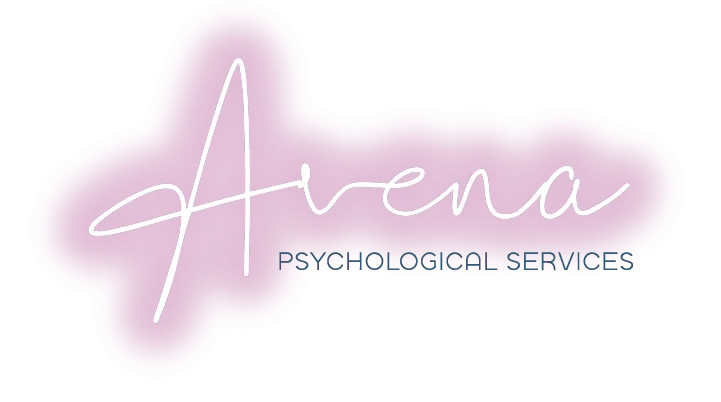Attention-deficit/hyperactivity disorder (ADHD) is a common neurodevelopmental condition that affects millions of adults worldwide. While often diagnosed in childhood, ADHD can persist well into adulthood, impacting everything from work performance to relationships.
However, the way ADHD presents itself in women can be quite different from the stereotypical image of a bouncing-off-the-walls child. This can lead to missed diagnoses and significant struggles for women with ADHD.
What Does ADHD Look Like in Female Adults?
Unlike the classic symptoms of hyperactivity and impulsivity often seen in boys with ADHD, women with ADHD tend to exhibit a presentation that’s less disruptive but equally challenging. Here are some key features:
- Inattentiveness: Difficulty focusing on tasks, easily distracted, forgetting appointments or deadlines.
- Organization Issues: Difficulty planning, keeping track of belongings, messy workspaces or homes.
- Emotional Dysregulation: Prone to frustration, overwhelmed easily, mood swings.
- Time Management Challenges: Difficulty estimating time needed for tasks, often running late.
- Internal Restlessness: Feeling like you need to be constantly doing something, even when trying to relax.
What It Feels Like to Have ADHD as an Adult Woman
Imagine staring at a computer screen, a blinking cursor mocking you as the words on the page blur together. You desperately want to focus on that report due tomorrow, but your brain feels like a radio stuck on scan.
One thought pops in, demanding attention as maybe it’s a half-remembered grocery list item, a social media post you forgot to like, or a daydream about that vacation you can’t afford.
You try to reel your focus back in, but another thought, equally insistent, shoves its way to the forefront.
This internal battle is a constant companion for many women with ADHD. It’s the feeling of wanting to be organized, to color-code your calendar and meticulously plan your day, but instead, living in a state of controlled chaos.
You might start a project with a burst of enthusiasm, only to have it fizzle out halfway through, leaving a trail of unfinished tasks and a gnawing sense of guilt.
The weight of deadlines is another ever-present stressor.
They loom large, like thunderclouds threatening a downpour. You scramble to catch up, the pressure building with each passing tick of the clock. The cycle of procrastination and last-minute heroics becomes exhausting, leaving you feeling perpetually behind.
Even the simplest tasks can feel herculean. Making a phone call, for example, might involve wrestling with your internal monologue to stay on topic, battling the urge to multitask by checking emails or tidying your desk while you talk. Social interactions can be challenging too.
You might miss social cues due to inattentiveness, or blurt something out impulsively, leaving others confused or offended.
The constant mental chatter can be overwhelming. It’s like having a dozen browser tabs open at once in your brain, each vying for your attention. This makes it difficult to concentrate on conversations, follow instructions, or absorb information.
The frustration of wanting to focus but being unable to can be incredibly isolating.
Despite the challenges, women with ADHD are often resourceful and highly capable. They may have developed elaborate coping mechanisms just to get by. But underneath the surface can lie a constant undercurrent of self-doubt and a nagging feeling that they’re not good enough.
This is the reality for many women with ADHD as a world where the simplest tasks can feel monumental, and the ever-present guilt of unfinished tasks hangs heavy in the air.
What are Symptoms of ADHD in Females?
The symptoms of ADHD in females can be subtle and multifaceted. Here are some common signs to watch for:
- Chronic Disorganization: Despite a desire to be organized, your home, workspace, or belongings are perpetually cluttered.
- Difficulty Completing Tasks: You start projects with enthusiasm but struggle to see them through, leaving a trail of unfinished tasks.
- Frequent Forgetfulness: You often forget appointments, deadlines, or errands, leading to feelings of unreliability and frustration.
- Internal Dialogue: A constant stream of thoughts bombards your mind, making it difficult to concentrate on a single thing.
- Emotional Sensitivity: You feel overwhelmed and frustrated more easily than others, and critical feedback can sting deeply.
What Does High-Functioning ADHD Look Like in Women?
Many women with ADHD are highly intelligent and capable. They may have developed coping mechanisms to function in daily life. However, this often comes at a significant internal cost.
They may experience constant stress, anxiety, and exhaustion from the extra effort required to keep up.
What Are Struggles for Women with ADHD?
Women with ADHD navigate a world that often feels designed for a different kind of brain. This can lead to a cascade of struggles that impact their daily lives, self-esteem, and relationships.
Here’s a deeper dive into some of the key challenges they face:
- The Internal Critic and the Monster Under the Bed: Chronic difficulties with focus, organization, and follow-through can chip away at self-confidence. Women with ADHD may constantly battle a negative inner voice, replaying past mistakes and fueling feelings of inadequacy. This can lead to perfectionism, a double-edged sword that can prevent them from starting tasks for fear of not doing them perfectly, or lead to burnout from trying to maintain an unrealistic standard.
- The Social Tightrope Walk: ADHD can make social interactions a minefield. Difficulty with inattention can lead to missing social cues or appearing disinterested in conversations. Emotional dysregulation can cause frustration or anger to flare up unexpectedly, jeopardizing friendships and romantic relationships. The constant internal chatter can also make it challenging to actively listen and participate in conversations, leading to feelings of isolation and social awkwardness.
- The Tyranny of Time: Time management is a constant battle for women with ADHD. The ability to estimate time accurately and switch between tasks seamlessly can be a challenge. This can lead to procrastination, missed deadlines, and a feeling of constantly being behind. The pressure to “catch up” can be immense, leading to stress, anxiety, and unhealthy coping mechanisms.
- The Partner-Parent Juggling Act: Societal expectations often place the burden of household management and emotional labor on women. For women with ADHD, these responsibilities can feel overwhelming. Keeping track of schedules, appointments, and grocery lists can be a constant struggle. Difficulties with focus and organization can make it challenging to maintain a clean and orderly home environment. This can lead to conflict with partners and feelings of inadequacy as a parent or caregiver.
- The Glass Ceiling at Work: The workplace can be a particularly challenging environment for women with ADHD. Staying focused in a distracting environment, prioritizing tasks effectively, and meeting deadlines can be difficult. They may struggle to present themselves confidently in meetings or take initiative on projects due to fear of failure or difficulty organizing their thoughts. This can hinder career advancement and leave them feeling undervalued or misunderstood.
It’s important to remember that these struggles are not a reflection of intelligence or capability. Women with ADHD are often bright, creative, and resourceful. However, the constant battle to keep up with the demands of daily life can be exhausting and lead to feelings of defeat. With the right support, understanding, and treatment, women with ADHD can learn to manage their symptoms and thrive in all areas of life.
Conclusion
Women with ADHD are not alone. Millions of women grapple with this condition.
By understanding the signs and symptoms of ADHD in females, and recognizing the unique challenges they face, women can get the support and treatment they need to thrive. If you suspect you might have ADHD, reach out to a mental health professional for an evaluation.
With proper diagnosis and treatment, you can learn to manage your ADHD symptoms and live a fulfilling life.
Contact us to schedule an appointment with a professional in New York or New Jersey.

